|
Recently, Alex Guberman from E for Electric published a somewhat sheepish video wherein he admitted that "Tesla may not be doomed after all." The May sales numbers for EVs, plug-in hybrids, and soft hybrids had just been published by Inside EVs, and they looked particularly good for Tesla... but perhaps not so great for those who, for whatever reason, like to spread fear, uncertainty, and doubt about Tesla. (These folks are affectionately known as FUDsters in the industry.) Of course, in the industry, I suppose I would be dubbed a Tesla "Fanboy," so my opinion could certainly be perceived as biased. Fair enough. But let's look at something that's not biased: numbers. Specifically, lets look at the US sales data for EVs, plug-in hybrids, and soft hybrids for just the month of May, 2019. As I said, these numbers come from InsideEVs, who consistently do a great job of gathering and publishing sales numbers for automobiles in the electric and hybrid sector.
The reasons for Tesla's strong sales results are many, but I thought I would share some of them with you here, as well as a rather interesting fact I found when I analyzed the sales numbers for the month of May. First, let me confess that I told Alex, in the comments posted below his video, that he's funny. I pointed out that he talks about Tesla as if it "may" not be doomed after all (which, in Alex's defence, may have been sarcasm as opposed to a solemn admission), and I suggested that Alex - and everyone else - take Elon's advice when analyzing Tesla: start from first principles. First Principles, as they Apply to the EV market Principle #1: EVs are the new mode of personal transportation. Electric vehicles are replacing the internal combustion engine. This is now perfectly clear. You don't need to take my word for it: even the presidents and CEOs of the top legacy automobile manufacturers are now admitting this as they scramble to catch up in the EV market. This past December, after announcing the impending closure of the GM plant in Oshawa, Ontario, Travis Hester, the president of GM Canada, said that "EVs are the future." This past February, Honda CEO Takahiro Hachigo, announced that Honda would be closing its plants in England and Turkey as they restructure for electrification. He stated, "We have decided to carry out this production realignment in Europe in light of our efforts to optimize production allocation and production capacity globally as well as accelerating electrification." Just two days ago, in a Tokyo press conference, Executive Vice President of Toyota, Shigeki Terashi, confessed that, "Demand for electric vehicles has grown stronger than we had projected." Toyota, who had been the industry laggard in bringing EVs to market (even making fun of electric vehicles in their advertising up until very recently), has now announced that they are pushing their EV program five years ahead of schedule. Principle #2: In the EV market, Tesla is the juggernaut. Compared to Tesla, all of the other original equipment manufacturers (OEMs) are producing paltry numbers of units, and they are offering products that are having a very hard time competing with the products offered by Tesla. I will present more on this below, as I dissect the US sales numbers for the first five months of 2019. Principle #3: Tesla has a huge first-move advantage. In both electric vehicles and autonomous driving, Tesla has years of lead time on other OEMs. Very recently, ARC Invest stated that Tesla is easily a few years ahead of their competition. Tesla only needs to stay about one year ahead of the competition to have an overwhelming advantage. However, the harsh reality for all other car companies is this: Tesla only needs to stay about one year ahead of the competition to have an overwhelming advantage. At any given point in time, once a consumer makes the decision to buy an EV, what are they going to buy: the most advanced electric vehicle available with the longest track record of success, or something else? You tell me. A Deeper Dive into the Sales Numbers I took the liberty of copying and pasting the data provided by InsideEVs into a spreadsheet so that I could work with the numbers. (That spreadsheet is available to be downloaded at the bottom of this article.) I was curious to put these numbers into perspective, so I decided to add up the sales for Tesla Models S, 3, and X, and then compare those numbers to all the other models available in the US EV, plugin-hybrid, and soft hybrid market. Here's what I found.
If that doesn't put things into a rather stark perspective, then I'm not sure what will. In Summary With companies like Toyota already conceding defeat to Tesla, it's pretty difficult to imagine Tesla's competition doing very well ten years from now. Tesla never planned to take over the automobile market. Their mission is, and always has been, to accelerate the world’s transition to sustainable energy. Ironically, that means that Tesla is motivated to make their cars the most compelling vehicles on the planet, and to keep their customers driving their electric vehicles for a million miles. Undoubtedly, this is a very difficult value proposition for traditional car companies to compete with. Manufacturers of automobiles powered by internal combustion engines are invariably falling victim to the biggest disruption since the gas-powered automobile replaced the horse and carriage. These traditional car manufacturers have always depended on dealerships, maintenance and service fees, and possibly even planned obsolescence to drive their revenues. Now they have to compete with a company that has a deeper purpose than just earning money, and a longer-term vision than just the next quarter's financials. I truly hope that the traditional car manufacturers do learn to adapt and survive in the emerging era of electrified transportation. After all, as much as I admire Elon Musk and Tesla, one relatively new company cannot possibly facilitate the transition to electrification as quickly as the world needs it to happen. We're going to need all of the world's major automobile manufacturers to come out with strong EV sales numbers every single year for the next ten years if we are to achieve the monumental task that the Intergovernmental Panel on Climate Change outlined in its 2018 Climate Change Report. However, it is now becoming painfully clear that the traditional automobile manufacturers are going to be facing an increasingly uphill battle as they set out to compete in this rapidly evolving market. Update: It is currently Sunday, December 29th, 2019: approximately six months after I wrote this article. Tesla's Shanghai Gigafactory is up and running, and it is rumoured to be currently producing 1000 cars a week. A company spokesperson recently stated that Tesla is set to begin deliveries of its first China-made Model 3 cars on December 30th... just 357 days after the company started construction of its Shanghai factory in an empty field. Tesla's stock price has risen meteorically in recent weeks, finding its way to a new all-time high of $430.00 a share. This makes Tesla by far the highest valued American automobile manufacturer by market capitalization. It also makes Tesla the third highest valued automobile manufacturer in the world, with only Volkswagon and Toyota commanding higher values in the stock market. Tesla could very well be within days of rolling out their first feature-complete version of full-self driving, potentially beating the world to this mark by years. To say that Tesla's growth is both unprecedented and unparalleled would be an understatement. Indeed, the world has never seen anything like this. At this date, my predictions for Tesla remain unchanged. Given its current trajectory, Tesla will likely be the only automobile manufacturer producing any substantial number of automobiles nine and a half years from now.
1 Comment
Tesla is more than a car company. It is a social movement... and it is a critical one.
Tesla, in a nutshell, is a private response to climate change. It is a challenge to the status quo of burning fossil fuels, and that is a status quo that would almost certainly lead to the end of human civilization. Big business and governments have been far too slow to recognize and respond to climate change. Yet, Elon Musk had the intelligence and the integrity to create a fortune, and then bet that entire fortune on the prospect of providing a solution to climate change: namely, sustainable transportation, renewable energy, and renewable energy storage. Mr. Musk continues to double down on his commitment, building his network of companies at a breakneck pace, and constantly pushing his organization to the brink. He does this because he understands the urgency of our predicament. Have you ever said to yourself, "Had I been there... I would have stood for the hard right against the easy wrong"? Have you ever thought, "Were I there... back in the times of slavery, I would have done things differently"? Have you ever claimed, "If I were around... during the Holocaust, I would have raised my voice"? Well, climate change is probably the biggest challenge that any generation will be called to confront, and we are all here... right now. We happen to be living and making decisions at this pivotal moment in history. My family and I have chosen to stand up. Yes... it comes with some sacrifice, perhaps even a certain amount of risk: standing up for what is right always does. But we have agreed that we don't want to go down without a fight. Whatever the future may bring, my wife and I want our children to know that we loved them so much that we did everything we could. And no matter how things turn out, we want to be on the right side of history. You may have heard that Tesla recently announced that they are closing some of their retail stores. To the uninitiated, this news may sound unsettling. It's not... at all. Tesla's decision to close a number of its retail stores is actually good news for Tesla and for both current and future Tesla buyers. I say this for three reasons. First, regardless of the presence of retail stores, all Teslas were already ordered online. Second, the cost savings achieved by closing these retail stores will allow Tesla to not only deliver the Model 3 at it's long-awaited base price of $35,000.00, but also to shift resources over to its service centres. Third, the closing of Tesla stores represents yet another dramatic example of the profound advantage that Tesla has over its competitors: namely, Tesla does not need to protect an existing line of legacy gas cars, and it does not depend upon a worldwide network of franchise dealerships to sell its products. While there may be those who would like to spin Tesla's decision to close storefronts as foreboding news, the only people quaking in their boots at this moment is Tesla's competition. They were already struggling to deliver competitive products at competitive prices, and now they have woken up to the news that the world's leading EV manufacturer will no longer be bearing the weight of brick and mortar shops to facilitate its sales. I suppose it would be fair criticism to say that's all just my opinion, but here are some first-hand facts that I can share about my own experience with the Tesla ordering experience. Perhaps this account will give future Tesla buyers some valuable insight into why Tesla just doesn't need a network of retail stores to sell their ever-growing line of products. Our Tesla Purchase Story In the summer of 2018, after 13 years of saving for an EV, my wife and I decided to finally buy a Tesla Model X. We had considered many options, and over the years, we had test driven everything from the Nissan Leaf, the BMW i3, the Kia Soul, to the Chevy Volt. Eventually, however, we settled upon the Tesla Model X. With a single phone call, a sales rep drove a Model X to our house, took our whole family out for an extended test drive - kids included - giving both my wife and I a chance to drive the car. He let the kids play around inside and out, experimenting with any buttons they could get their tiny little hands on, playing with the electronic seats, the touch screen, and, of course, the falcon wing doors. Then the sales rep capped it off with a garage fitting to make sure that the rather large Model X could not only fit in our garage, but that the falcon wing doors could actually open up inside the garage as well. We were absolutely thrilled with the car. The next day, we phoned our sales rep and said we would like to go ahead with the order. He then advised us to simply order the car online using our Tesla account. (I had already registered my Tesla account back in January of 2017 when I became a reservation holder for a Model 3.) The buying process was simple, convenient, and the online account provided clear updates and confirmations every step of the way. After registering a Tesla account online, you just select a Tesla model, choose your configuration (i.e. 5, 6, or 7 seats in the case of the Model X), and then indicate any options you might want. A deposit is made using your credit card, and voila... your car is ordered. Tesla provides three days to either cancel or make adjustments to your order, after which the order is locked. Then begins the waiting period for your car to be built and delivered. Everyone who has ever ordered a Tesla will tell you that this period of time - regardless of how short it may be - will test anyone's patience. However, Tesla makes this time period fun and informative, as your online account allows you to monitor the status of your car as it gets assigned a VIN, moves through production, awaits transport, and then ships from Fremont, California to your house, your local Tesla store, or a local delivery event. Tesla also makes productive use of this time period by asking purchasers to upload copies of their driver's license and insurance slips to their Tesla online account. This allows Tesla to get the cars outfitted with license plates ahead of delivery. They also share orientation videos as well as the car's owner's manual over the online account, thus allowing purchasers to become acquainted with the operation of their automobile long before it is even delivered. I made good use of this time as well, cleaning up my garage and getting an EV charger installed in preparation for our Tesla's arrival. In our case, this entire process took only two months from order to delivery, but I'll admit... it felt like a year. Finally, a Tesla delivery specialist informed us that our delivery date was drawing near. Then came the big day. Our car was scheduled to be delivered as part of a mass delivery event at a local convention centre. Some family friends excitedly picked us up and drove us out to pick up our car. The event was shockingly well organized. We showed up at our designated time, and made ourselves hot drinks in Tesla's comfortable and well-appointed lounge. After only five or ten minutes, we were called in to sign our paper work. Then we were taken around a large wall of curtains into a huge indoor lot full of shiny new Teslas... what a beautiful sight it was. We were walked to our car and provided a general orientation of the vehicle and its various systems. Of course, all of this takes place indoors because electric cars make absolutely no noise or fumes. After our session, the delivery specialist drove the car outside to the parking lot for us. I noted that the only noise you could hear was the squeaking of the rubber tires against the cement floor whenever the front wheels were turned. That's it. These cars are eerily quiet. Within only an hour after we had arrived, we were driving off with our brand new car. We were finally Tesla owners. The whole thing seemed unreal. In Conclusion If there is one thing I can say about Tesla, it is that they absolutely know how to sell and deliver cars. The experience is nothing like the tense cat and mouse game played in traditional car dealerships. With Tesla, the customer and the corporation are united in their mutual desire to do their part for sustainable transportation. Yes, there was certainly a time when Tesla stores served a critical purpose in exposing the brand to the public and educating potential buyers about the Tesla line of products. However, as Tesla is quickly becoming one of the most popular automobile manufacturers in the world, they really don't need to maintain a large network of stores: especially since all Tesla orders were invariably made online anyway. The stores simply provided sales reps to help walk customers through the process of registering an online account and placing their orders. Today, the ever-growing community of Tesla owners, the rapidly-expanding network of charging stations and service centres, and the company's website and online ordering platform provides everything the modern car buyer needs to confidently order a Tesla. Add to that the company's 24-hour / 1,000 mile satisfaction guarantee (which is extended to seven days if a buyer never had the opportunity to take a test drive), backed by a full refund, and you quite simply have a suite of advantages with which no other car manufacturer, in my opinion, can compete. I know Tesla's mission is to "to accelerate the advent of sustainable transport" but, at this rate, it would appear that they are both willing and able to do the entire job themselves. Hey Daniel,
Thanks for getting in touch with me. I've looked around at a number of hybrids and full electric cars, and a recent event made me all the more determined to get completely away from anything that burns oil or gas. A spark plug quit on me over the holidays, and it ended up costing me over $400.00 in servicing. For me, that represented the final nail in the coffin of the gas car. I like the idea of pure electric vehicles because we get to drop so much weight from the car (engine, gas tank, exhaust system, cooling system, alternator, transmission), not to mention the wear, tear, and maintenance associated with all those moving parts. Knowing that longer-range electric vehicles are coming onto the market in 2018, I don't think it would be prudent to buy a low-range EV at this time, knowing that they will surely depreciate massively once longer-range EVs become available. In fact, this appears to be happening already. (See: http://www.greencarreports.com/news/1108058_deal-of-the-year-used-fiat-500e-electric-cars-at-6500) For this reason, I just put a deposit on a Tesla 3. I know the Tesla 3 won't be available for quite some time, but I've learned that no other comparable cars will be coming out in the near future either. I learned from my local Nissan dealer that the 2017 Leaf is not much different than the 2016 model, and I learned from my local Chevy dealer that all of the Chevy Bolts that will be made available for Canada this year are already spoken for. Thus, I'll have to wait until 2018 anyway, so I might as well wait for the Tesla 3 (where I can at least make a deposit and get my name on a waiting list.) Maybe this information will help GM gain an insight into the thinking process of a prospective, ready-to-buy consumer. I'd like to buy a new electric car, but with such great offerings coming down the pipe next year, how could I commit myself to anything that isn't at least comparable to these anticipated products? Thanks again for getting in touch, Daniel. I wish you all the best in 2017. Cheers, Art |
Green NeighbourWhen it comes to the environment, we are all neighbours. Archives
November 2022
Categories
All
|
|||||||||||||

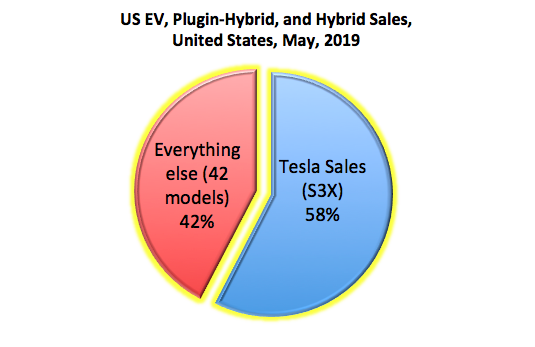

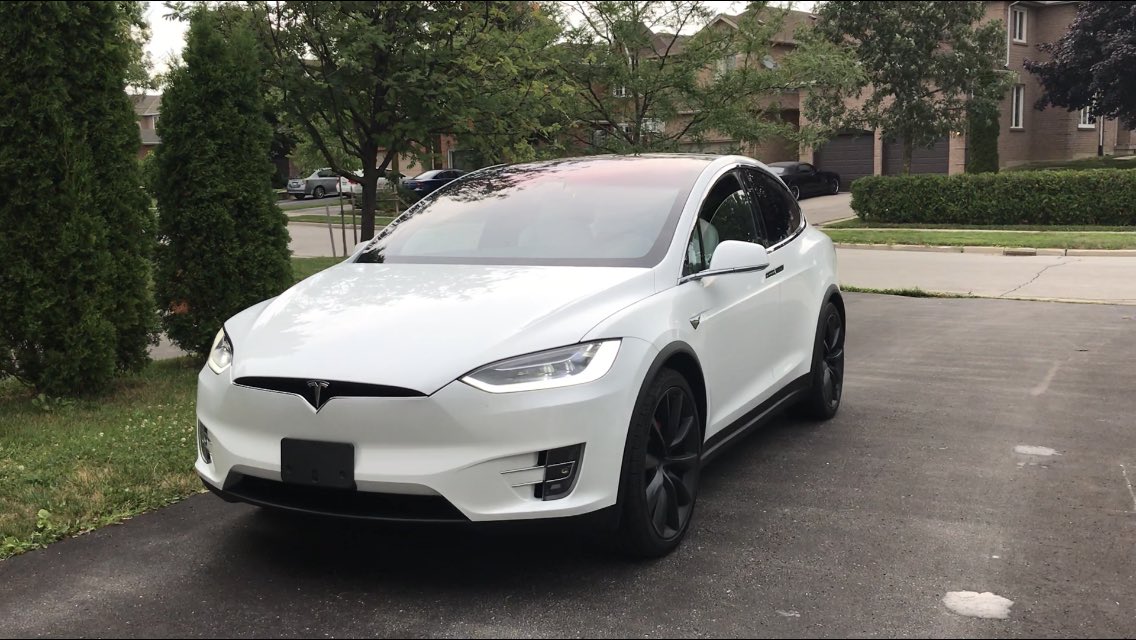
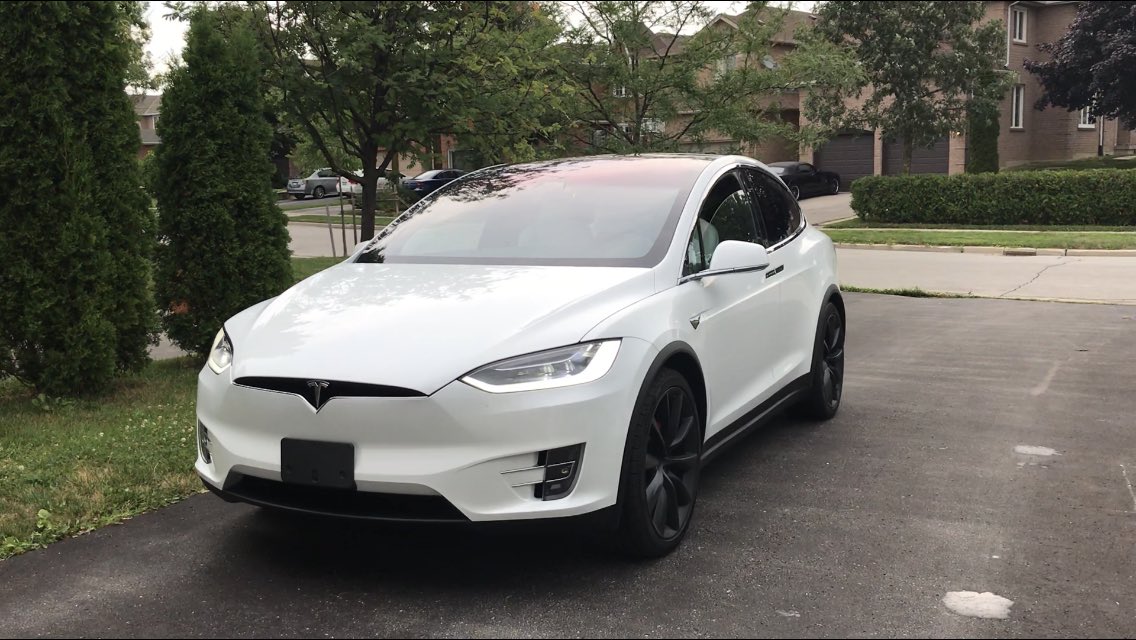
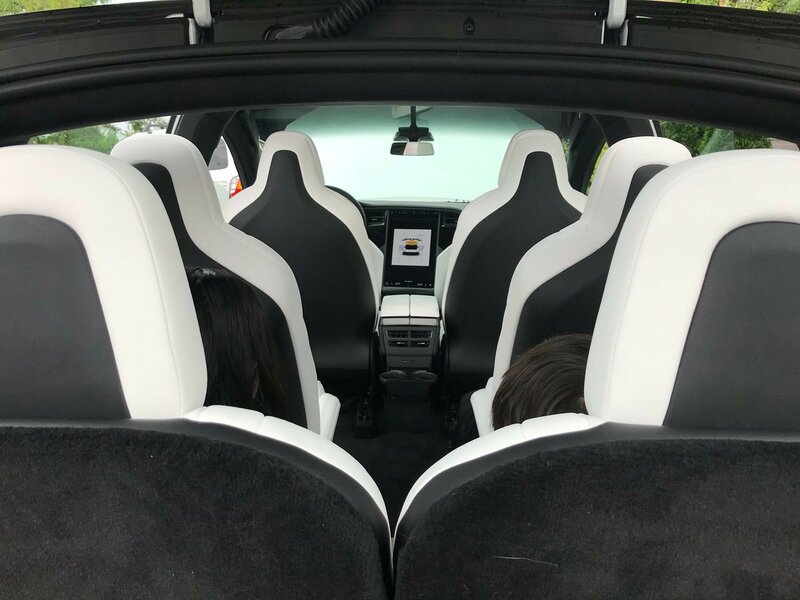
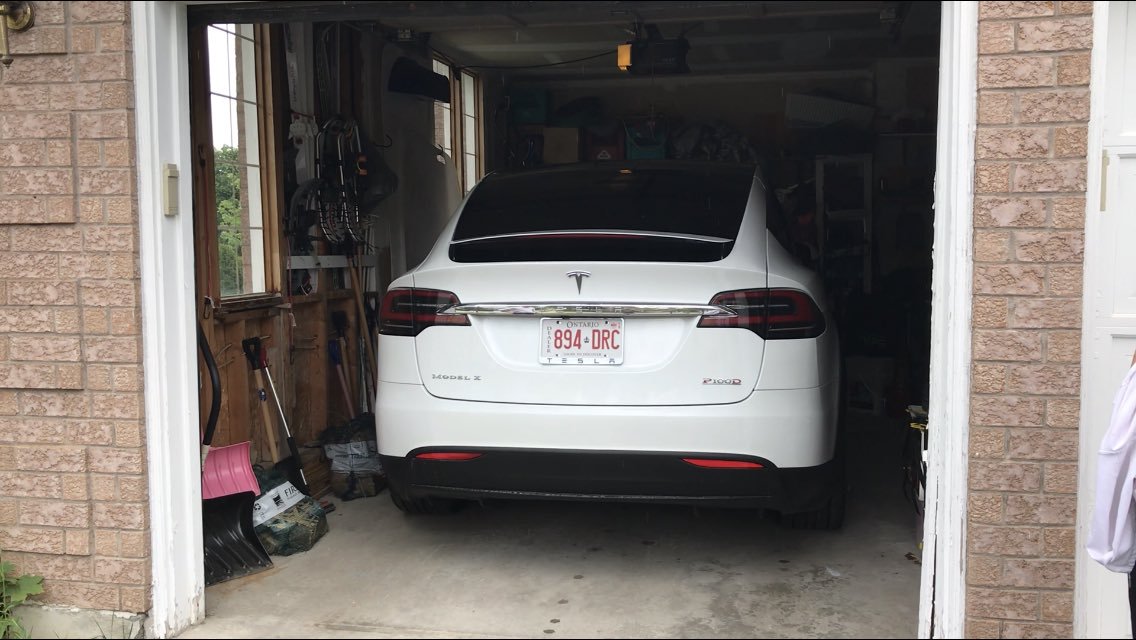
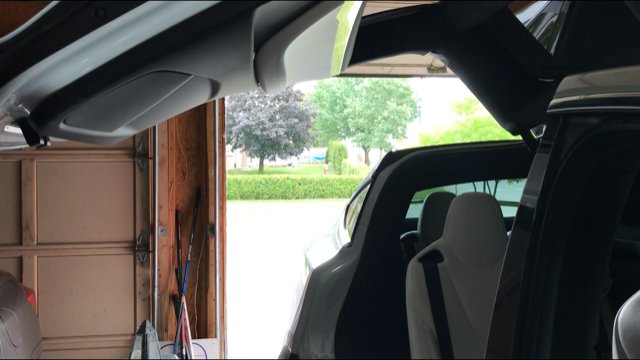
 RSS Feed
RSS Feed